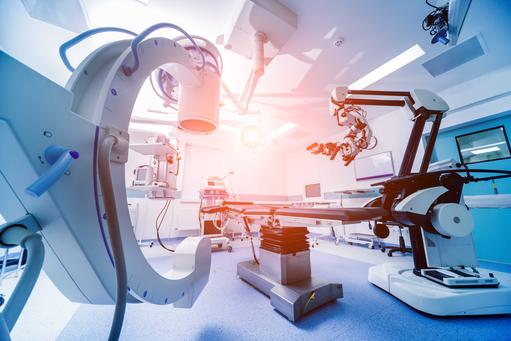- Over the past two decades, neurosurgery has been transformed by technological advancements, interdisciplinary collaboration, and a deeper understanding of the brain
- Breakthroughs like functional magnetic resonance imaging and minimally invasive surgery have enhanced diagnostics and treatments, steering the field away from its conventional practices
- By 2040, such changes will continue and accelerate as neurosurgery embraces augmented reality interfaces, robotics, and artificial intelligence, facilitating personalised interventions based on individual genetic profiles
- The future of neurosurgery will not only showcase technological excellence but also a heightened commitment to ethical principles prioritising patient welfare and societal wellbeing
Neurosurgery 2040
Over the past two decades, neurosurgery has undergone a transformation, marked by increased precision, less invasive procedures, and swifter recovery, all driven by technological advances, interdisciplinary collaboration, and an enhanced comprehension of the brain. Progress ranges from neuroimaging technologies to refined surgical techniques. This Commentary briefly describes the milestones and ethical considerations of neurosurgery up to ~2040.
Since 2000, the convergence of technologies such as functional magnetic resonance imaging (fMRI) and minimally invasive surgery has improved diagnostic approaches and treatment methodologies. Departing from conventional norms, the advent of personalised medicine and the rise of neurostimulation hold the promise of advancing our comprehension and treatment of neurological disorders.
Looking forward to ~2040, we foresee these trends intensifying, with operating rooms (OR) equipped with state-of-the-art technologies like augmented reality interfaces, robotics, and artificial intelligence (AI), synergising with human expertise. Envisage progress in targeted medicine to also continue and further disrupt neurosurgical treatments by customising interventions according to individuals' distinctive genetic profiles and incorporating developments in gene therapies. As these technologies augment cognitive capabilities, addressing ethical concerns to increase in importance will become more relevant. Prioritising moral considerations will be essential to ensure responsible and compassionate utilisation of these tools.
Furthermore, the upcoming collaboration spanning various fields is positioned to speed up, playing a crucial role in driving neurosurgery to unprecedented levels. This cooperative endeavour is expected to break down traditional barriers and enhance our understanding of the complexities of the brain. Looking forward to 2040, an intensified sense of purpose among healthcare providers is predicted, highlighted by heightened global awareness and strategic initiatives aimed at reducing healthcare disparities by broadening access to neurosurgical expertise worldwide. Underscoring the increasing significance of robust ethical guidelines and ongoing dialogues, we highlight the importance of steering the path of neurosurgery beyond technical innovations. Contemplate a growing focus on ethical principles that prioritise patient welfare and societal wellbeing, indicating that the future of neurosurgery will be characterised by a blend of technological expertise and a more pronounced commitment to human values and purpose.
In this Commentary
This Commentary has two parts. Its overall aim is to nudge neurosurgeons and providers to reflect on their current modus operandi and strategically prepare for the future. Part 1, Neurosurgery since 2000, briefly describes technological developments and interdisciplinary collaboration, which have improved diagnostics, treatments, and our understanding of the complexities of the brain. Part 2, Neurosurgery 2040, anticipates integrated operating rooms where augmented reality, robotics, and AI merge with human expertise. This forward-looking approach stresses interdisciplinary collaboration and a purpose-driven mindset to enhance access to efficacious therapies.
Part 1
Neurosurgery since 2000
Over the past two decades, neurosurgery has evolved at a pace unparalleled in its history. From advancements that have improved diagnosis to the refinement of surgical techniques, the field, since the turn of the millennium, has been a testament to the determined pursuit of knowledge and the inventive spirit within the medical community. We briefly describe aspects of this transformative journey, shedding light on a few key milestones, ethical considerations, and the promising trajectory that lies ahead.
Technologies such as fMRI, diffusion tensor imaging (DTI), and positron emission tomography (PET) have become essential tools to improve diagnostics. Concurrently, minimally invasive surgical approaches, guided by real-time imaging, have not only reduced invasiveness but have also improved patient outcomes. The collaboration between advanced neuroimaging and refined surgical methods marks a shift in neurological care, by facilitating more precise and effective interventions. Indeed, a hallmark of neurosurgery's evolution since 2000 has been the increased use of precision medicine. Departing from the traditional one-size-fits-all approach, the field has shifted towards tailoring treatments based on individual genetic, molecular, and physiological characteristics. Genetic profiling, biomarker identification, and targeted therapies have emerged as effective tools to enhance diagnostic accuracy and pave the way for the expansion of personalised therapies. This departure from conventional approaches suggests a future where neurosurgical treatments are as unique as the individuals they seek to assist.
Empowered by technological progress, surgeons can now probe the brain with newfound precision and safety. Minimally invasive approaches, including endoscopic and stereotactic procedures, have minimised trauma, accelerated recovery times, and expanded the scope of what is surgically achievable. Neuron-navigation systems and robotic-assisted surgeries have further enhanced neurosurgical practice, redefined possibilities, and improved outcomes. The rise of minimally invasive procedures has not only reshaped neurosurgery but has also facilitated patient-friendly approaches over traditional open surgeries. Techniques such as endoscopic and laparoscopic procedures significantly reduce physical tolls on patients, improve recovery times, and minimise complications. Equipped with specialised tools and advanced imaging, neurosurgeons can navigate through the brain's structures with minimal disruption, and not only provide medical advantages but also cosmetic benefits and faster postoperative rehabilitation.
|
|

